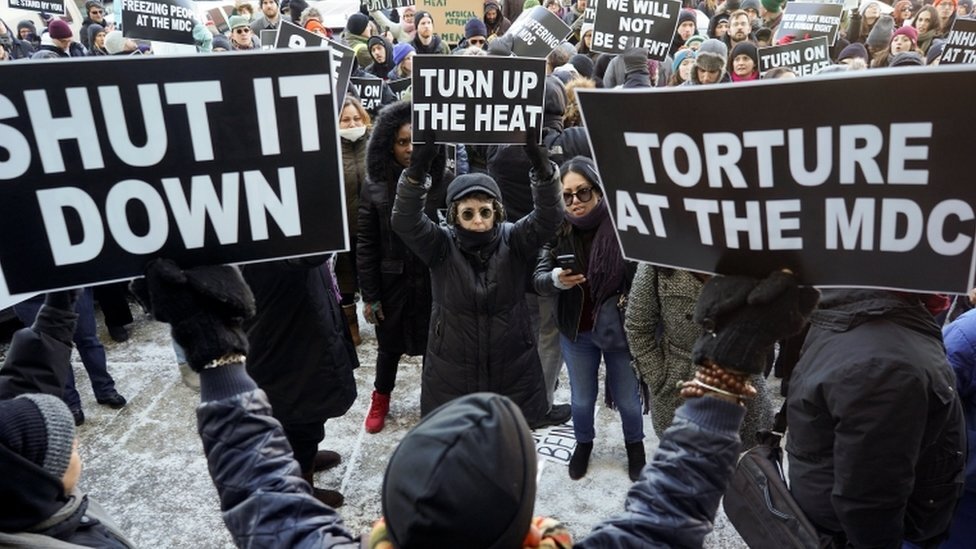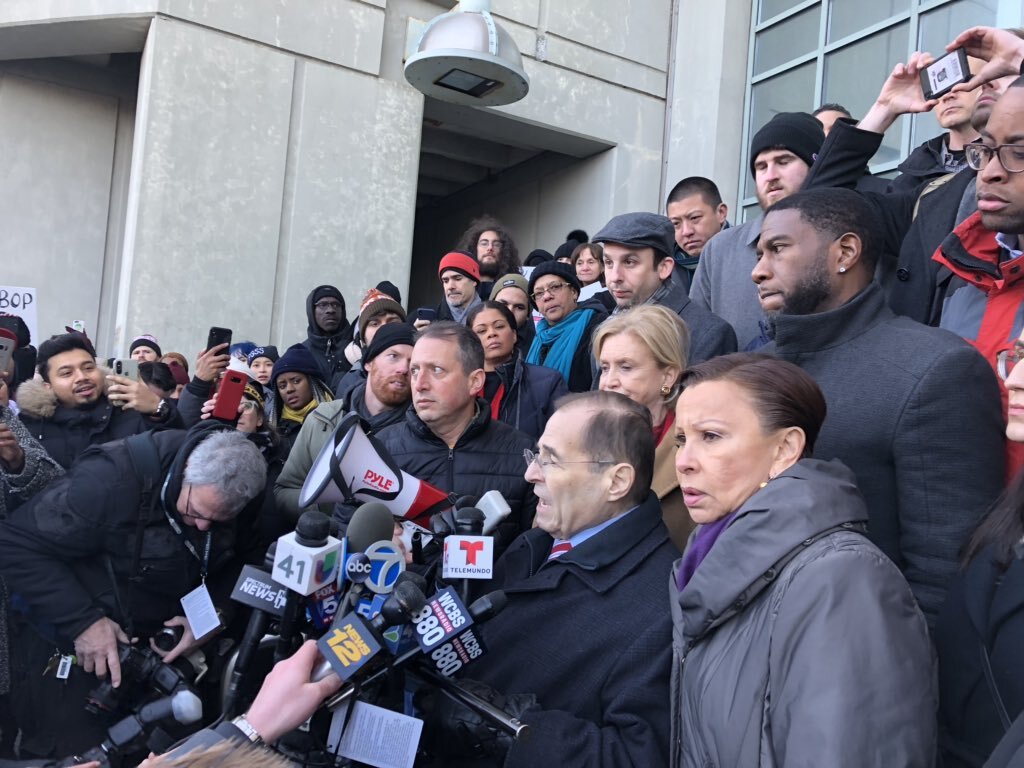Eastern District of New York Grants Class Certification to Incarcerated People Who Faced Inhumane Conditions
Andrea Núñez, Law Fellow
Judge Edward R. Korman granted class certification to a group of people incarcerated at the Bureau of Prisons’ Metropolitan Detention Center (MDC) in Brooklyn. Scott v. Quay, No. 19-cv-1075-ERK-PK, ___ F.R.D. ___, 2021 WL 2102268 (E.D.N.Y. May 25, 2021). Plaintiffs brought a claim under the Federal Tort Claims Act.
Plaintiffs alleged that class members were subject to “inhumane conditions that posed unreasonable and substantial risks to their health and safety” after an electrical fire that resulted in a week-long power outage in MDC’s West Building. The “harrowing picture of prison conditions in the wake of the fire and power outage” included lockdowns that kept Plaintiffs in their cells for twenty-four hours a day for several days. Plaintiffs claimed that their cells were so dark that they could not see their food when they ate and so cold that they used towels to try to block frigid air from blowing into the cells. The freezing conditions were exacerbated by MDC staff’s failure to provide residents with adequate clothing. The commissary did not function during the power outage, so Plaintiffs could not buy additional supplies to keep warm during the winter weather. Some residents had purchased cold weather items prior to the outage, but those who could not afford to do so or who had not done so before the commissary closed likely endured the worst of the icy conditions.
Protesters outside the Metropolitan Detention Center in Brooklyn, chanted: "Where is the heat"? Many inmates had not been able to contact the outside world for days, following a partial power failure.
Plaintiffs also alleged that MDC staff failed to provide them adequate food and clothing and deprived them of access to hot water for cleaning, bathing, and laundry. Plaintiffs were forced to wash themselves in their cell sinks with cold water or forego washing for fear of getting sick. One resident suffering from ulcerative colitis had bloody bedding that had not been changed because of the lack of laundry services. Other incarcerated people with chronic medical conditions did not receive their medication and were unable to receive medical treatment. Class members also reported not being able to use their CPAP machines, not having access to mental health staff, and even enduring dirty bandages that had not been changed in weeks. All this happened out of reach from the outside world, as MDC staff allegedly also restricted class members’ access to communication and visitation with loved ones and counsel. MDC staff also failed to communicate with residents about the situation, leaving them uninformed and anxious what was happening.
The court ultimately certified a class defined as those confined to MDC’s West Building from January 27, 2019 until February 3, 2019 and who have satisfied or will satisfy the exhaustion requirement imposed by the Federal Tort Claims Act. The court held that the proposed class was ascertainable because the membership criteria—information that Defendants have easy access to—are objective.
Plaintiffs satisfied all Rule 23(a) prerequisites.
The proposed class includes approximately 1,600 members, easily satisfying the numerosity requirement, a point that Defendants conceded.
The court also held that Plaintiffs satisfied the commonality requirement. Plaintiffs raised several common factual issues in the complaint: whether Defendants were aware of the need to maintain MDC's infrastructure but failed to do so, whether Defendants developed and implemented an adequate emergency response plan, what emergency measures Defendants took or failed to take during the power outage crisis, whether those acts or omissions exposed people incarcerated at MDC to a substantial risk of serious harm, and whether Defendants knew of and disregarded that risk. The court concluded that the resolution of these issues would determine the ultimate question of whether Defendants had breached the duty of care they owed to those incarcerated at MDC.
In response to the inhumane conditions, inmates' families, public defenders, and other NYC lawmakers met to inspect the facility, speak with the warden, and demand immediate action.
For much the same reasons, the court held that the typicality requirement was also satisfied. Plaintiffs alleged that Defendants violated the duty they owed to the class, and all class members were subject to the same conduct from Defendants and were exposed to the same risks of harm. The court shut down Defendants’ contention that typicality is absent because Plaintiffs had satisfied the exhaustion requirement while some of the putative class members had not, explaining that Defendants’ typicality problem was “illusory” because the class definition excludes anyone who has not satisfied the exhaustion requirement. The court refused to consider any disputes regarding whether class members who had not exhausted would be eligible for some form of tolling that would allow them to exhaust in the future, concluding such a question was outside the scope of class certification.
In holding that Named Plaintiffs satisfied the adequacy requirement, the court again rejected Defendants’ claims that Plaintiffs could not adequately represent claimants who had not exhausted. The court also found proposed class counsel to be adequate, given their extensive civil rights and class action litigation experience in federal court.
The court turned its attention to Rule 23(b)(3) requirements and again held that Plaintiffs had met their burdens.
Despite the possibility that some class members may have suffered unique injuries in addition to the injuries suffered by the class as a whole, the court found that the central and predominating issues in the case were the scope of the duty of care Defendants owed to people incarcerated in MDC’s West Building during the power outage crisis, whether Defendants breached that duty, and whether Defendants’ breach resulted in injury to class members.
The court concluded that all factors listed in Rule 23(b)(3) weighed in favor of finding superiority. Potential class members do not have significant interest in maintaining separate actions, given that potential recovery for each is likely to be small relative to the cost and effort of litigating against the federal government, especially given that class members are likely to lack the resources or training to vindicate their rights. That only a handful of class members filed their own suits reinforced this lack of interest in individual litigation. Finally, litigating the claims on a class basis would likely be more efficient and manageable than individual actions.
Congratulations to the law firm Emery Celli Brinckerhoff Abady Ward & Maazel LLP, the Benjamin N. Cardozo Civil Rights Clinic and its Director Betsy Ginsberg, and Cardozo School of Law professor Alexander Reinert on obtaining class certification in this important case seeking justice for incarcerated people.



